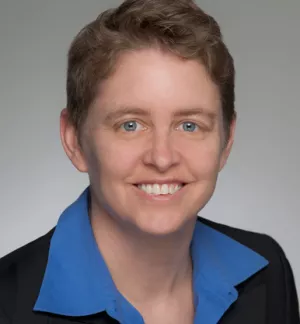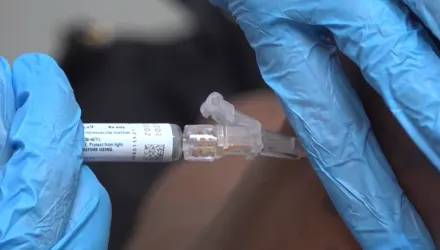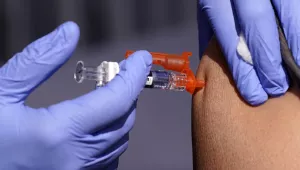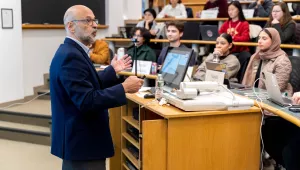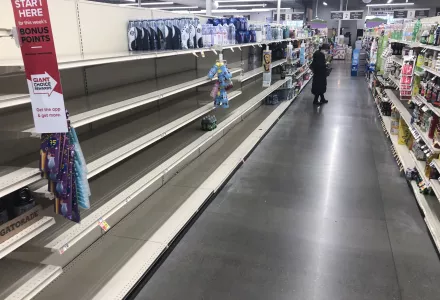
Two weeks ago, when my wife had a bit of a cold, or probably not but maybe, just possibly, COVID-19, I couldn't buy a thermometer at the local drug store. I bought the last two bottles of Zicam, even though I only wanted one. Half the toilet paper was gone from the shelves. It's the beginning of a run on the bank, I thought. If only George Bailey was president now.
That Saturday night, entire aisles had nothing left to buy. No pasta. No frozen food. No eggs. And now all non-essential Massachusetts businesses have closed.
I hope you don't stop reading now to rush out to the store. But I'll understand if you do.
As you stand in the aisle with a second, third or fourth of something in your hand, when you only need one, remember Jimmy Stewart's character in It's a Wonderful Life. George Bailey narrowly saves the building and loan, in a run on the bank, successfully appealing to members to withdraw only as much as they absolutely had to.
We aren't sure today how much is enough. We know that with no notice, we might be told to self quarantine for two weeks. Employers are telling employees to work from home. Restaurants are being ordered to shut down. Schools and universities are going remote. Large gatherings and events are being banned and cancelled, where "large" keeps dropping, from 250 to 100 to 50 to 25 to 10.
We have to stock up to make our own social distancing, isolation and self quarantine possible. But we are buying even more as insurance, because we don't know how long this will last or how bad it will get and because we have lost confidence in the stability of the rules and infrastructure we rely on. We are a little afraid that the shelves won't get restocked or that we won't be able to get to the store and that we can't rely on anyone but ourselves.
And yet, if we take too much from grocery store and pharmacy shelves, leaving them bare, we create the shortages we fear. And if our neighbors cannot shelter in their homes too, it won't matter that we are. The virus will continue to spread, unslowed, and our third gallon of milk will spoil before we can use it.
Heed George Bailey's advice, "Now, we can get through this thing all right. We've got to stick together, though. We've got to have faith in each other." Even as we make preparations to take care of ourselves and those closest to us, we should be aware, more than ever before, how our actions affect others, those we know and those we don't.
We must cooperate with strangers we will never meet, and reach out to acquaintances and friends in ways we never have. We must, even as we practice physical social distancing, increase social intimacy.
Beyond the health threat, we were losing jobs, businesses and homes, even before the latest order. Dry cleaners, gyms, restaurants and retail stores go bankrupt when their customers stay home. “Strange, isn’t it?" Clarence the angel says to George. "Each man’s life touches so many other lives. When he isn’t around he leaves an awful hole, doesn’t he?”
We are lonely, anxious and sad. We will need each other more than ever in the coming months. We should buy only what we need knowing others need it too. And we should ask how else we can help each other.
If we cannot leave our houses, we should fill the air with music, singing and exercising together from the balconies and rooftops as they are doing in Italy and Spain. We should ask to hear the rehearsals for performances that will never happen. We should invite a friend for a video breakfast date and make an offer of help to a neighbor we've quarreled with. We should give a stranger a reason to smile. We should make simple gestures and astonishingly generous offers.
And when the crisis is over, we should not forget all the ways we found to come together.
Gretchen Greene is a Fellow with the Technology and Public Purpose Project at Harvard Kennedy School's Belfer Center and a Senior Advisor with The Hastings Center.
Greene, Gretchen. “If Only George Bailey was President Now.” Belfer Center for Science and International Affairs, Harvard Kennedy School, March 31, 2020


